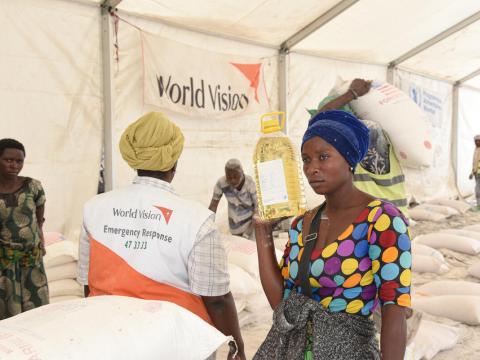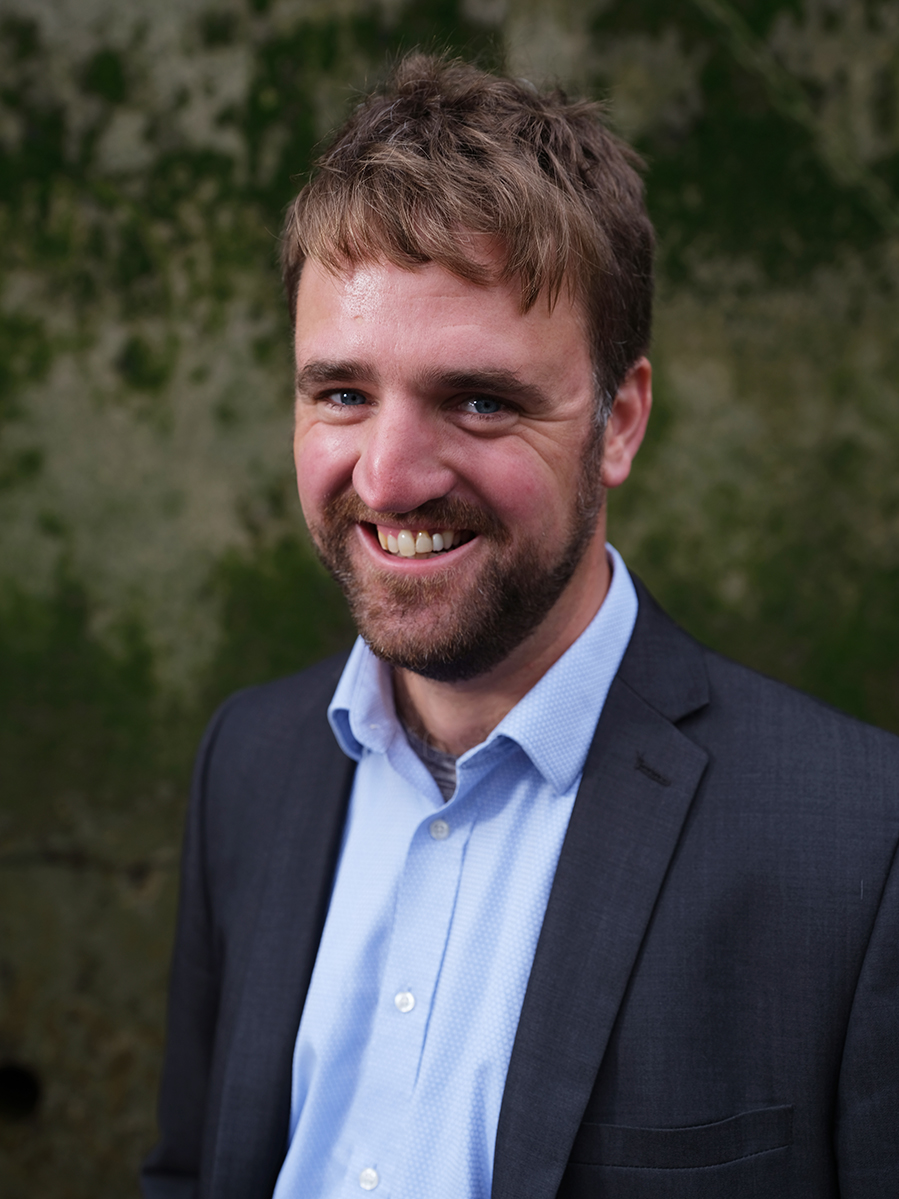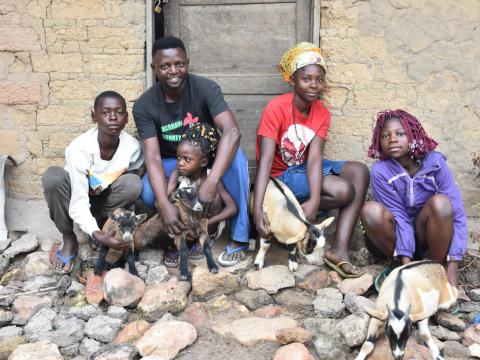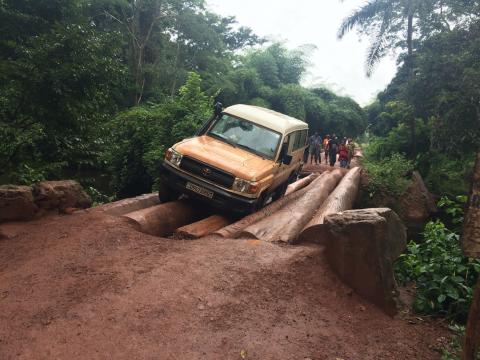
Security in conflict zones requires trusting relationships
Johan reflects that relationships are central to providing security when delivering much-needed food to conflict-affected people.
29 November, 2023
A few days before writing this artillery fire could be heard near Goma in eastern Congo.
The distant noise is a reminder that while eastern Congo is a beautiful landscape of rolling green hills overlooking scenic lakes, it is also home to long-standing conflicts. For humanitarian staff based in the area it is an all-too familiar sound, one that is prepared for through regular security training.
For another group of people that sound brings different meaning. Close to 300,000 internally displaced men, women and children who have fled conflict in North Kivu could also hear the sounds of the conflict that had not long ago displaced them. Now they can hear that conflict coming closer to them as they shelter in a number of camps, as can the two million people who live in Goma.
My visit to the area was to better understand the area and how the current tensions in the country and among the many armed groups affect our ability to operate in that space where so many need assistance. I got to witness how hard it is to bring some order in an often chaotic camp for displaced people to be able to conduct a food distribution. World Vision staff in one of those camps provide food for almost 10,000 individuals per day.
This is a lot of food, but that one camp hosts close to 100,000 people now. That increase is due to increasing armed conflict in the area, and the trigger for our visit.
By deploying World Vision’s GECARR (Good Enough Context Analysis for Rapid Response) together with our local, regional and global teams we are able to better understand, anticipate and prepare for the turbulent future that the next couple of months may hold for Eastern Congo.
The camps for internally displaced persons are situated in areas of astounding natural beauty, located between the scenic Lake Kivu on one side and the majestic Mount Nyiragongo volcano on the other side. Yet this beautiful part of the world holds much tragedy, and many of the hundreds of children who greeted us in these camps have never known a time of reliable peace.
Now those children live in tents in the mud, being supported by food rations provided by World Vision and the United Nations, amounting to about 15 dollars a month per person. Fifteen dollars is clearly not sufficient, but due to funding restrictions that is what is available.
There is an urgent need for increased funding in DRC, both as the humanitarian needs increase and as the cost of meeting those needs increase as the security situation deteriorates.
To be able to operate in this part of the world, as in so many conflict-ridden places elsewhere, World Vision implements rigorous security management. This includes specialised training for local and international staff, trained security officers and well-developed security plans based on competent and collaborative scenario analysis.
This is not cheap, but this is the cost of operating some of the most dangerous places in the world while to the best of our ability ensuring the safety of staff and communities.
The essence of this security management is acceptance. World Vision is able to operate because local communities understand the work, wants our presence and are involved in designing relief efforts so that they work not just for us, but also for them. This means that good security and acceptance requires good communications and relationship building, as acceptance is based largely on who others believe us to be.
That in turn, in a place like eastern Congo, often comes down to interpersonal connections at the very local level, where pivotal conversations are held over a cup of coffee in the immediate vicinity of an intense food distribution.
Johan Eldebo is World Vision's Director of Security Operational Support. Follow Johan on Twitter @johaneldebo


